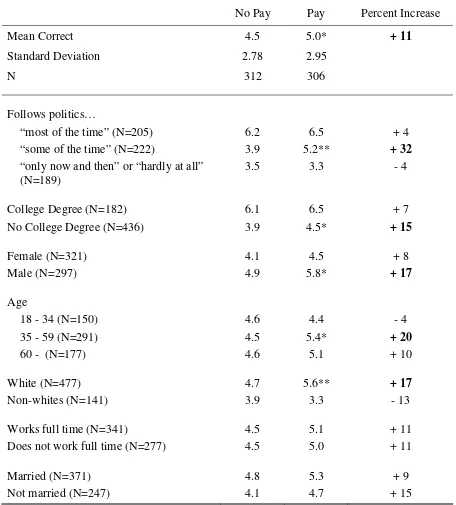What Citizens Know Depends on How You Ask Them: Political Knowledge and Political Learning Skills
Full text
Figure




Related documents
Procedure BP is most comparable to our proposed pro- cedure in that it is a sequential, eliminating procedure, which, relative to other Bernoulli selection procedures,
The last column in Table 1 calculates the extent of these gender differences, with the slightly (1-2 hour) higher sleep levels for women in the Americas also in evidence -- but
Owing to the strong emphasis on interdisciplinary education, graduates of this Master’s program possess excellent competencies both for addressing legal issues in an
The aim of the systematic review is to collate, analyse and synthesise the international evidence that supports high-quality intrapartum care during the second stage, which will
2006 Grant Residency Program at the HVCCA, Hudson Valley Center for Contemporary Art, New York, with support from Sala Rekalde Bilbao, Spain.. ZINEBI, Bilbao International Short
The effect of cutting parameters towards surface roughness, temperature and tool wear were analyzed using Analysis of Variance (ANOVA) method and to achieve
The loss of gut microbiome richness found in a high proportion of otherwise healthy individuals corresponds to an alter- ation of the neglected organ, which promotes inflamma-
Objective two analyzed the mean scores of the critical thinking dispositions of engagement, innovativeness and cognitive maturity against the selected demographic variables of



